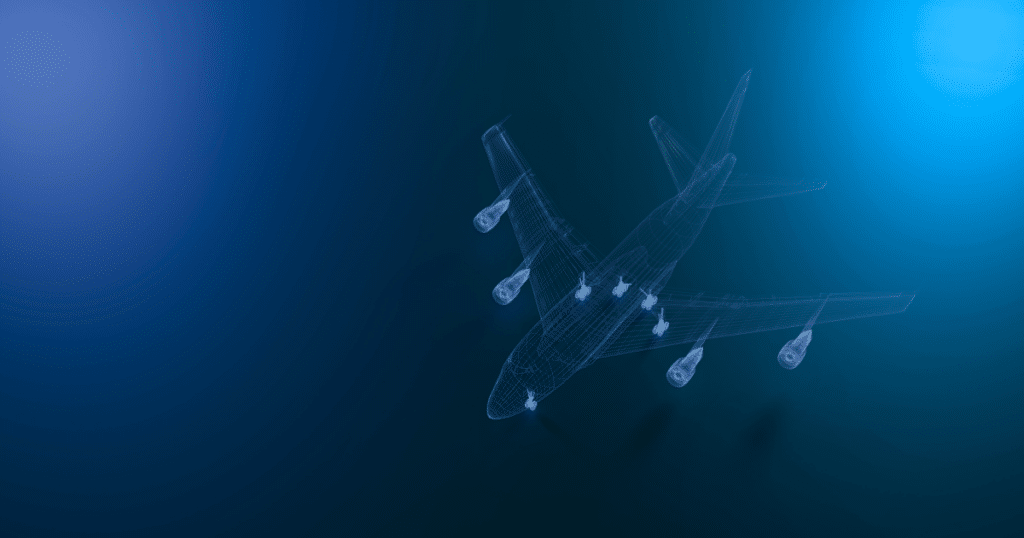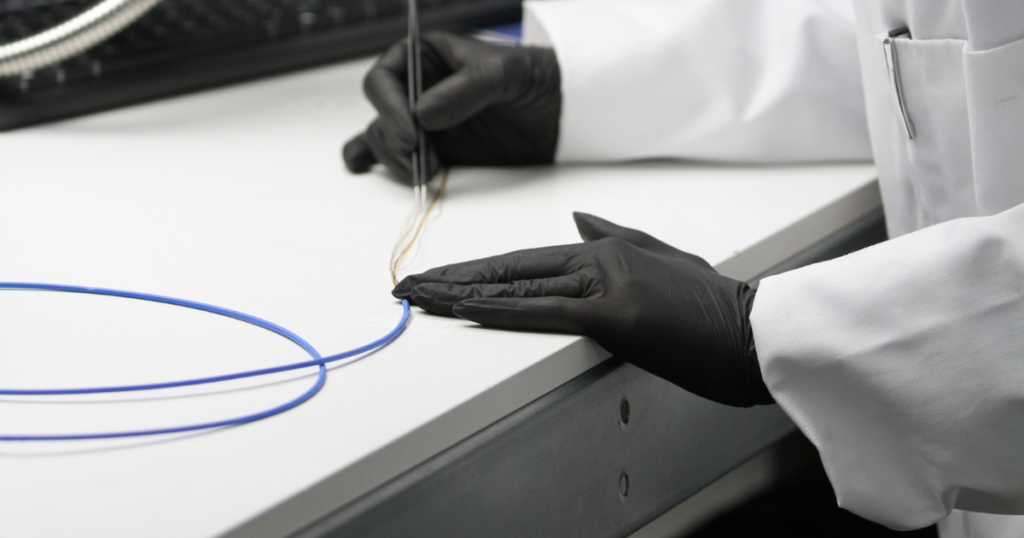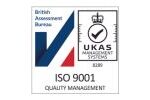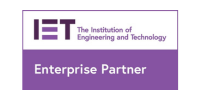The Vital Role of Cable Preparation in Aerospace
In the aerospace industry, every wire, every connection, and every cable plays a vital role in ensuring the functionality and safety of aircraft. Whether it’s a commercial jetliner or a military drone, the importance of reliable cable preparation cannot be overstated. As aircraft become more complex, so does the network of wires within them, sometimes stretching hundreds of miles in a single airframe.
Why Precision is Critical in Modern Aerospace Wiring
Precision in aerospace cable prep isn’t just about performance, it’s about life safety, mission assurance, and regulatory compliance. Even a minor defect in wire stripping or termination can cause signal loss, system failure, or worse. That’s why the industry is increasingly turning to laser-based technologies, which bring unmatched precision, repeatability, and efficiency.
Overview of Aerospace Cable Preparation
Definition and Scope
Aerospace cable preparation encompasses all procedures necessary to get wires and cables ready for termination, splicing, or integration into larger systems. This includes:
-
Cutting
-
Stripping
-
Crimping
-
Labeling
-
Testing
Common Cable Types in Aerospace
Some of the most commonly used cable types include:
-
Coaxial Cables – for signal transmission
-
Shielded Twisted Pair (STP) – for data systems
-
High-Temperature Wires – for engine and turbine environments
-
Fiber Optics – for advanced communication and sensors
Standard Procedures for Cable Prep
Traditional cable preparation includes:
-
Manual or automated wire stripping
-
Measuring and cutting to length
-
Crimping connectors with torque specifications
-
Insulation removal and wire brushing
However, with the rise in complexity and miniaturization, traditional methods are becoming insufficient.
Challenges in Traditional Cable Prep Methods
Manual Cutting and Stripping Limitations
Manual processes can be:
-
Time-consuming
-
Error-prone
-
Inconsistent
Especially when dealing with micron-level tolerances, a slight over-strip or misalignment can ruin the cable.
Risk of Human Error and Material Waste
Aerospace wiring is expensive. Errors can lead to:
-
Material waste
-
Costly rework
-
Safety risks
-
FAA or EASA audit failures
Regulatory and Safety Compliance Issues
Manual methods often fail to meet:
-
MIL-SPEC standards
-
ESD and cleanliness requirements
Technological Innovations in Aerospace Cable Prep
Automation and Robotics
Modern aerospace harness shops are embracing cable preparation systems that:
-
Reduce cycle times
-
Ensure consistency
-
Offer traceability and quality control
Smart Tooling Systems
Tools embedded with sensors and AI can adjust torque, temperature, and stripping depth in real-time, ensuring first-pass yield.
Integration with Digital Twin Technologies
Digital twins allow engineers to simulate wire harness designs, optimize routing, and digitally validate prep procedures before actual production.
Introduction to Laser Cable Processing
What is Laser Wire Stripping?
Laser wire stripping uses a highly focused beam to remove insulation without damaging the conductor beneath. It’s a non-contact, programmable, and ultra-precise method ideal for aerospace applications.
Core Technologies Behind Laser Systems
The key technologies include:
-
CO₂ Lasers – Ideal for ablating outer jackets
-
Ultrafast Lasers – Handle micro wires and sensitive materials
-
Hybrid Systems – Combine laser and mechanical stripping
Advantages Over Mechanical Methods
Lasers offer:
-
No blade wear
-
Zero conductor contact
-
Minimal operator dependence
-
Capable of stripping shielded, coaxial, and PTFE-insulated wires
Key Benefits of Laser in Aerospace Cable Prep
Enhanced Precision and Cleanliness
Laser systems can achieve sub-millimeter accuracy, crucial for multi-core or densely packed cables.
Contactless, Damage-Free Processing
Since there’s no physical contact, there’s:
-
No nicking
-
No insulation melting
-
No shielding compromise
Time and Cost Efficiency
While initial investment is high, laser systems:
-
Increase throughput
-
Reduce rework
-
Lower long-term operational costs
Emerging Trends in Laser-Based Cable Preparation
Miniaturization and Micro-Wire Handling
Laser systems now handle ultra-fine wires used in:
-
Avionics
-
Flight control systems
-
Satellite applications
AI-Driven Calibration and Quality Control
Machine learning algorithms ensure:
-
Perfect stripping length
-
Adaptive laser power control
-
Automated inspection and pass/fail grading
Integration with IoT and Smart Factories
Modern factories integrate laser cable systems into MES (Manufacturing Execution Systems) for real-time monitoring and data logging.
Industry Adoption and Case Studies
Aerospace OEMs Embracing Laser Tech
Major aerospace companies around the world are adopting laser prep for:
-
Reduced wire prep times
-
Improved traceability
-
High-volume harness production
ROI and Productivity Metrics
-
50% faster prep times
-
80% reduction in rework
-
ROI achieved within 18-24 months
Standards and Certifications for Laser Cable Processing
MIL-SPEC and AS50881 Compliance
Laser stripping can be configured to meet strict aerospace wire prep standards, including:
-
MIL-STD-873 (stripping procedures)
-
AS50881 (wiring systems in aircraft)
ISO and SAE Standards
Systems should also align with:
-
ISO 9001 / AS9100 quality management
-
SAE AS22759 insulation specs
Safety Considerations in Laser Use
Safety systems include:
-
Fume extraction
-
Laser training
-
Operator interlocks
Comparing Laser Cable Prep with Other Modern Methods
| Method | Precision | Cost | Speed | Best For |
|---|---|---|---|---|
| Laser Stripping | ★★★★★ | $$$ | ★★★★☆ | Micro-wires, high-value cables |
| Mechanical | ★★☆☆☆ | $ | ★★☆☆☆ | Basic stripping |
Laser Cable Prep in Military vs. Commercial Aerospace
Mission-Critical Differences
Military systems often require:
-
Higher thermal resistance
-
EMP protection
-
Field-repairable cables
Environmental Considerations
Lasers support prep for cables exposed to:
-
Salt fog
-
Jet fuel
-
EMI environments
Budget vs. Performance Trade-offs
Commercial operators prioritize speed and cost, while military programs demand durability and fault tolerance.
Future of Aerospace Cable Prep
Role of AI and Machine Learning
Artificial Intelligence is poised to redefine cable prep by:
-
Enabling self-calibrating laser systems
-
Offering predictive maintenance alerts
-
Automating 100% inline quality inspection
AI-driven software can recognize anomalies in cable insulation, conductors, or shielding and adjust parameters on the fly, minimizing defects and maximizing uptime.
Sustainability and Green Manufacturing
Laser technology contributes to greener aerospace manufacturing through:
-
Reduced material waste
-
Elimination of harmful chemical solvents
-
Lower energy consumption vs. traditional thermal systems
Eco-friendly production is not just good for the planet, it’s becoming a competitive advantage.
Predictions for the Next Decade
Experts forecast:
-
80% of aerospace cable prep to be automated by 2035
-
A surge in portable laser systems for field maintenance
-
Universal integration of digital wire libraries for faster change management
Buyer’s Guide to Choosing Laser Cable Prep Equipment
Key Specifications to Look For
When selecting a laser wire stripper or processing unit, consider:
-
Wire gauge range (AWG support)
-
Insulation type compatibility
-
Laser source type (CO₂, UV, ultrafast)
-
Processing speed (wires per minute)
Laser Wire Solutions: Your Trusted Partner in Aerospace Cable Prep
At Laser Wire Solutions, we live and breathe laser wire stripping—it’s not just a product offering, it’s our core expertise. With years of hands-on experience across the aerospace sector, we’ve seen it all and solved it all. From high-mix harness shops to fully automated OEM production lines, our laser solutions are:
-
Low-risk and proven – We’ve successfully delivered systems for complex aerospace challenges, eliminating guesswork.
-
Fast to deploy – Our streamlined process ensures rapid delivery and integration, minimizing disruption to your workflow.
-
ROI-focused – Every solution is designed with efficiency, yield, and return on investment in mind.
But what truly sets us apart? We take the process development burden off your shoulders. Our team handles everything from initial sample testing to custom tooling, software optimization, and on-site training. That means you can stay focused on your aerospace mission—while we ensure your cable prep process is ready for takeoff.
Whether you’re scaling production or solving for micro-wire challenges, Laser Wire Solutions is your partner in precision, speed, and success.
Maintenance and Support Factors
Laser Wire Solutions provides:
-
Onsite training
-
Spare parts availability
-
Remote diagnostics
-
ISO-certified support
Cost Analysis of Laser Cable Processing Systems
Initial Investment vs. Long-Term Savings
Laser systems may start at $40,000 to $250,000+, depending on features. However, ROI is realized via:
-
Labor reduction
-
Scrap minimization
-
Higher throughput
Energy Consumption Comparison
Laser systems often consume less energy than mechanical systems operating at similar output levels, due to fewer moving parts and no consumables.
Training and Workforce Development
Upskilling Technicians for Laser Equipment
Laser prep systems require skilled operators trained in:
-
Software operation
-
Laser alignment and calibration
-
Safety protocol adherence
Certifications and Learning Paths
Courses are available through:
-
IPC/WHMA-A-620 training programs
-
OEM-led certification
-
Online simulation labs
Global Market Outlook for Aerospace Cable Prep
Market Size and Growth Trends
The global market for aerospace wiring harnesses, including prep tools, is projected to grow from $14 billion in 2025 to $21 billion by 2030, with lasers playing a leading role.
Regional Insights (US, EU, Asia)
-
US: Defense-driven innovation and strong OEM demand
-
Europe: Focus on sustainability and compliance, strong investment in aerospace & defense
-
Asia-Pacific: Rapid growth in MRO (Maintenance, Repair, Overhaul) and low-cost automation
Competitive Landscape
Key players are investing in:
-
In-house laser R&D
-
Strategic tech partnerships
-
Patents around multi-mode laser systems
FAQs on Aerospace Cable Prep & Laser Role
1. What is the biggest advantage of using lasers for cable preparation?
Lasers offer unmatched precision without damaging the conductor, making them ideal for sensitive aerospace wiring.
2. Are laser systems safe to operate in production environments?
Yes, most modern systems come with class-1 laser enclosures, fume extraction, and safety interlocks, making them safe for daily use.
3. How does laser stripping compare to mechanical methods in terms of cost?
While the upfront cost is higher, laser systems significantly reduce waste, errors, and labor, yielding a lower total cost of ownership over time.
4. Can lasers handle shielded or coaxial cables?
Absolutely. Specialized systems are designed to strip multi-layered and shielded cables without disturbing the internal conductor or braid.
5. Is laser prep suitable for military aircraft wiring?
Yes. Laser systems are often the only approved method for ultra-critical military applications due to their repeatability and documentation capabilities.
6. What maintenance is required for a laser wire stripper?
Basic maintenance includes lens cleaning, software updates, and occasional recalibration, most systems offer predictive maintenance alerts.
Conclusion
Recap of Laser’s Role in Aerospace Evolution
Laser technology is no longer just an innovation, it’s a necessity in modern aerospace cable preparation. With rising demands for precision, speed, and reliability, traditional wire prep methods are falling short. Lasers provide the flexibility, accuracy, and safety that today’s aerospace sector demands.
Final Thoughts on Staying Ahead of the Curve
As aircraft evolve, so must the tools that build and maintain them. Investing in laser cable preparation is more than a technological upgrade, it’s a commitment to future-readiness, compliance, and competitive advantage.
Further Reading:
Check out this NASA Tech Brief on Laser Wire Stripping for deeper technical insights.









